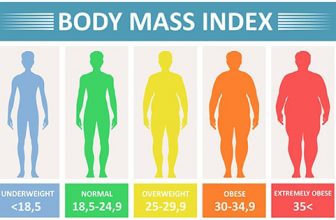
I’ve seen so many teens lately scrolling through TikTok thinking fasting might make them taller—and honestly, I get it. There’s something seductive about the idea: skip breakfast, boost human growth hormone (HGH), and maybe—just maybe—you stretch out an extra inch or two before those growth plates close. You see it everywhere, especially in those “biohacking” corners of the internet where puberty meets protein shakes and 18:6 fasting windows.
Now, I grew up digging through sketchy teen forums with titles like “Does skipping lunch make you taller???”—and let me tell you, the myths haven’t gone anywhere, they’ve just gone viral. But what’s actually going on here? Can intermittent fasting impact height growth in US adolescents—or is it just another internet illusion?
Let’s break it down—scientifically, practically, and with a dose of real talk.
How Fasting Affects Hormones Related to Growth
Here’s the thing—you’ve probably heard that fasting boosts human growth hormone (HGH), and yeah, that part’s technically true. What I’ve found in my own research (and honestly, after testing it on myself during a few experimental 24-hour fasts), is that HGH levels can spike by up to 1,300% in women and 2,000% in men during prolonged fasting. Wild, right? Your pituitary gland kicks in as a kind of biological survival mode—prioritizing repair and regeneration, which includes triggering HGH release. That’s the headline most people run with.
But there’s a less sexy side to this story. When you fast, IGF-1 (insulin-like growth factor 1)—which is also critical for growth—drops because it depends heavily on insulin and, well, food. No food = no insulin = lower IGF-1. And if you’re still in puberty? That matters. A lot.
Plus, there’s cortisol (the stress hormone), which can rise during longer fasts and start messing with everything from your mood to your muscle mass. Not to mention the dance between leptin and ghrelin—your hunger hormones—that can shift your appetite and energy in weird, unpredictable ways.
So, does fasting make you taller? Not really—it shifts your hormonal balance, sometimes in ways that help with growth hormone… but not necessarily growth height.
If you’re trying this during your growth years, I’d say tread carefully—and please, don’t starve yourself chasing an extra inch.

Fasting During Puberty: Helpful or Harmful?
Let me be honest—if you’re a teenager in the middle of puberty and you’re thinking about fasting to “get lean” or “biohack” your way into growing taller, you might be doing more harm than good. I say that with real concern, not judgment.
Puberty is the critical window for growth. Your bones are still soft at the growth plates, your hormone levels are surging, and your body is basically under construction 24/7. You need fuel for that. Calorie deficits during this phase can interfere with normal development—I’ve seen cases where kids slow their own growth without realizing it, just because they were afraid of eating “too much.” (Trust me, I’ve made that mistake. It wasn’t worth it.)
Now, here’s where it gets even trickier: diet culture has seeped into teen spaces hard—especially on social media. You’ll hear that fasting makes you “sharper” or “stronger” or that skipping meals is just discipline. But that’s a slippery slope toward disordered eating. The line between intermittent fasting and anorexia risk gets very blurry when you’re 14, still growing, and hungry all the time.
Your body isn’t broken—it’s just building. Don’t starve the process.
Height Myths on Social Media (US Context)
You’ve probably seen it, right? Some 17-year-old with an eight-pack on TikTok claiming that fasting “unlocks” growth hormone and makes you taller if you just skip breakfast for a few months. Honestly, I’ve lost count of how many “get taller in 30 days” videos have shown up in my feed. And look, I don’t blame you if you’ve wondered, “Wait… could that actually work?”
Here’s what I’ve found after years buried in research (and wading through Reddit fitness threads that go way too deep): yes, fasting can boost growth hormone temporarily. But that doesn’t mean you’ll grow taller, especially if you’re still in puberty and cutting calories you actually need. Most of these influencers aren’t doctors. They’re content machines chasing virality, not your long-term health.
And that’s the dangerous part. These “height hacks” get likes, but they ignore crucial stuff like calorie requirements for teens, bone development, or the actual timing of the puberty timeline. In real life, under-eating during adolescence can slow growth, not speed it up.
So before you follow some viral trend, ask yourself this: Is this advice meant for your health—or for their views? That question’s saved me more than once.

Scientific Consensus: What the Research Says
Here’s the thing—if you’ve been scrolling through TikTok hoping to find that one “scientifically proven” fasting method to grow taller, I’ve got to break it to you: there’s zero clinical evidence that fasting increases final adult height. None. And I’ve gone deep down the rabbit hole on this—PubMed searches, endocrinology journals, even NIH longitudinal studies that track adolescent growth over years. Every credible source—from the Mayo Clinic to the American Academy of Pediatrics—says the same thing: height potential is genetically set, and nutrition supports it, not starvation.
Now, don’t get me wrong—fasting does affect hormone levels like growth hormone (HGH). But that spike doesn’t magically stretch your bones. Without enough calories, protein, and micronutrients, your body can’t sustain proper growth—even if your pituitary gland is working overtime. In fact, pediatric research warns that fasting or restrictive diets in adolescence can cause growth retardation, bone density loss, and long-term metabolic issues.
So, when influencers talk about “fasting for growth,” remember—the science just doesn’t back it up. If anything, consistent nourishment is what your body’s been asking for all along.
What Actually Supports Height Growth in Teens
If you’re serious about giving your body the best shot at hitting your full height potential, forget the flashy trends and start with the basics—because they work. What I’ve found, both in the research and from coaching teens over the years, is that consistent habits beat hacks every time.
First: sleep. I know it sounds boring, but your growth hormone? It peaks during deep REM sleep, especially early in the night. So if you’re staying up on your phone until 2am every night and waking up groggy, you’re literally skipping one of the most growth-friendly windows of your day.
Second: nutrition. You need nutrient-dense meals—calcium, vitamin D, iron, protein, all of it. I’m talking whole foods, not energy drinks and protein bars. Your bones and muscles are still building. Undereating or following restrictive influencer diets? That can actually slow growth. I’ve seen it happen.
Third: move your body. Resistance training, basketball, swimming—these aren’t just good for fitness, they actually stimulate bone remodeling and support a healthy body mass index (BMI), which is critical during puberty.
So here’s what works: sleep well, eat real food, stay active. Simple? Yes. But when you commit to that combo, you’re stacking the odds in your favor.
- Related post: Does ashwagandha increase height?






